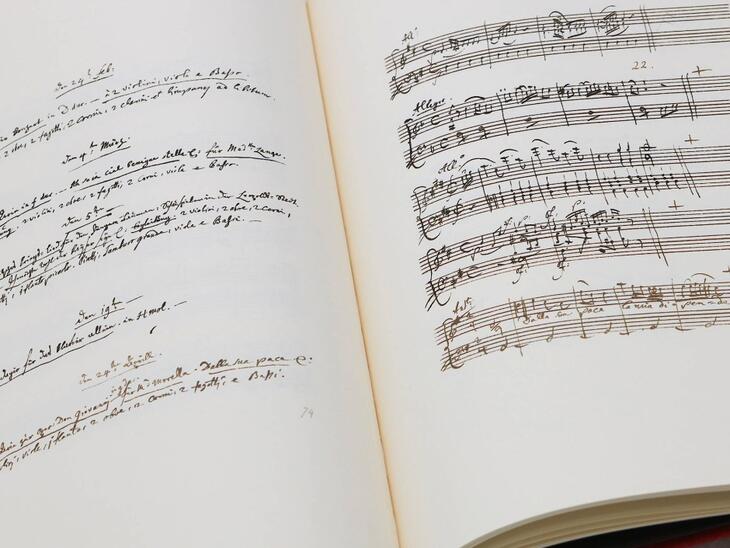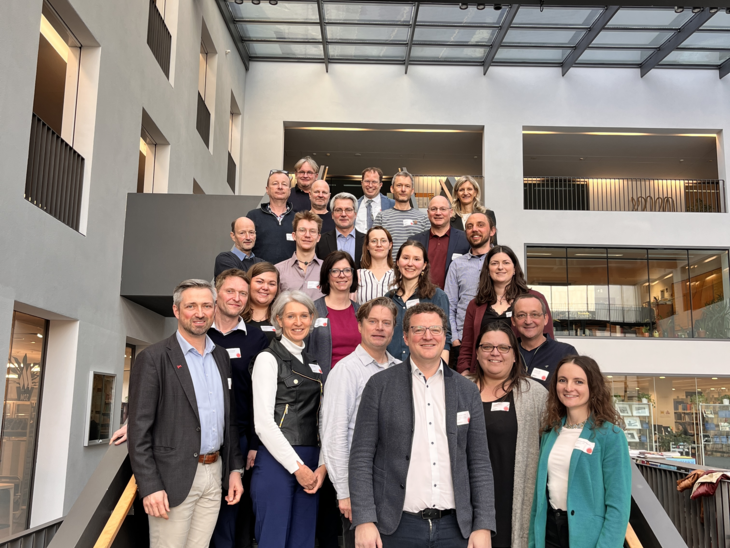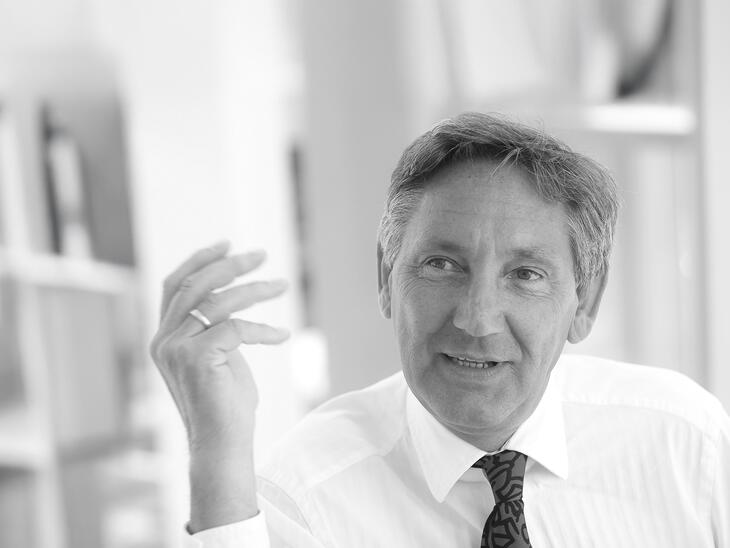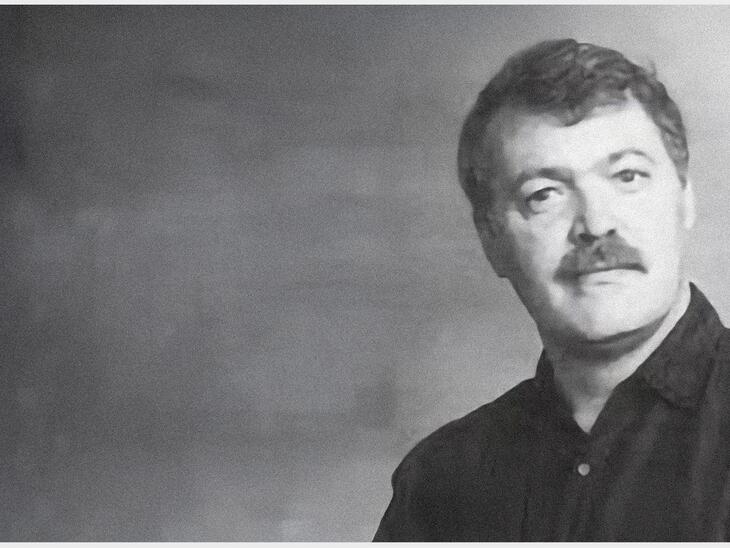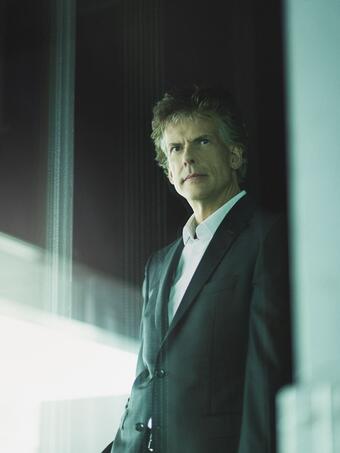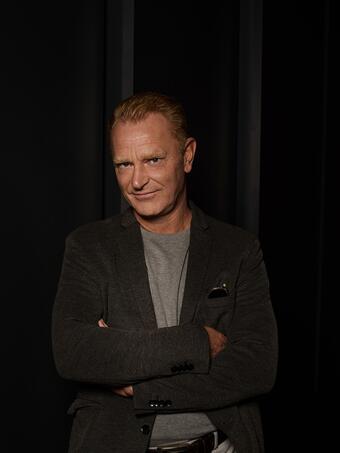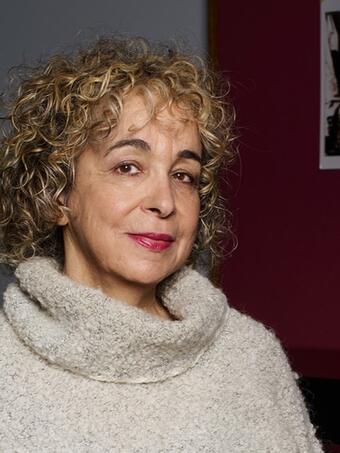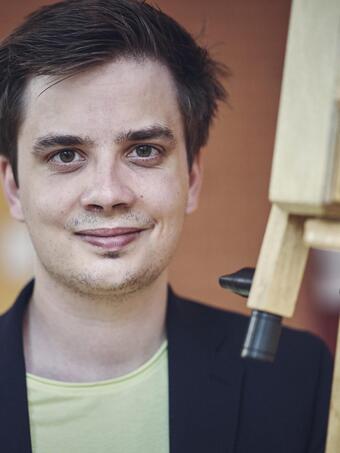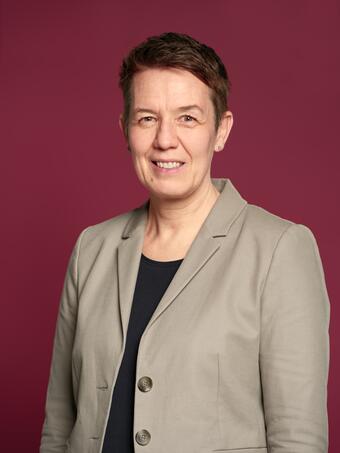Mozart:Forum
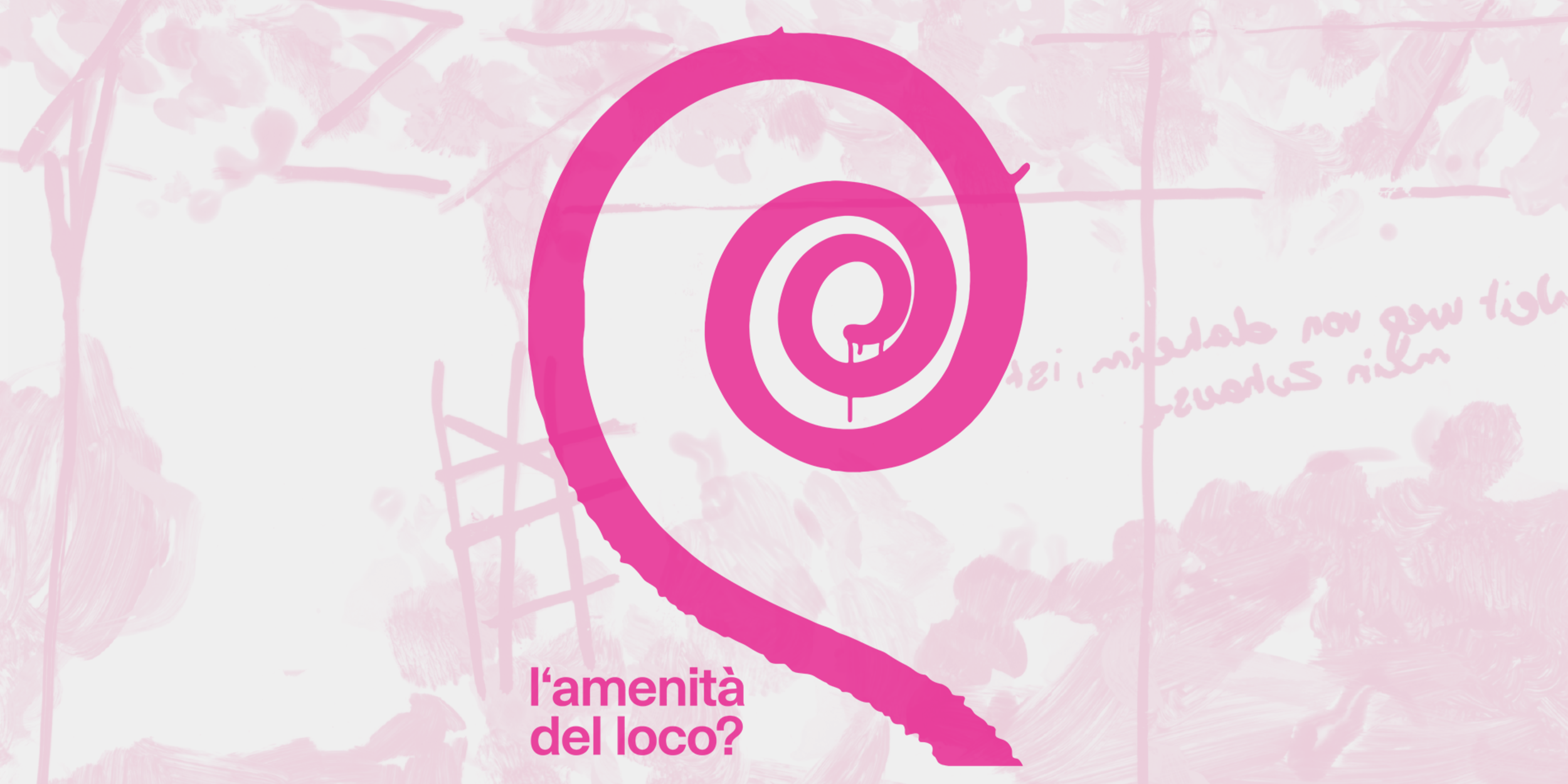
Overview
The Mozart:Forum, whose mission is to bring together and encourage activities related to Mozart, was established out of the Mozarteum University’s dedication to the composer and his legacy. Ambitious annual programmes invite interested parties to engage with scholarly debate and with artistic performances, concerts and opera productions: the Forum is a place of experience and understanding, of tradition and questioning, of research and experimentation, and perhaps even provocation.
Mozart:Forum
Mirabellplatz 1
5020 Salzburg
About
The Mozart:Forum was established in 2021 as a special interdisciplinary and interdepartmental institution. Since then, it has offered visitors an ambitious annual programme to meet and linger, to engage in scholarly debate and artistic presentations, to attend concerts and operas, readings and lectures, or even a festive event: it offers space for experiencing and understanding, research and experimentation, upholding tradition but also questioning it, and perhaps it can even be said to offer space for provocation - if one wants to do justice to the great composer himself, this eventuality should not be ignored! It is historically informed, artistically exposed, academically reflected, and fit for the 21st century. When the Mozarteum began in 1841, fifty years after the death of Wolfgang Amadé Mozart, a remarkable story began. 180 years after the Mozarteum's beginnings, the Mozart:Forum of the Mozarteum University kicked off the 230th anniversary year of Wolfgang Amadé Mozart's death with an impressive programme.
Just in time for the composer's birthday on 27th January 2021, a second project was launched as Spot On MozART went online; this project of the Mozart:Forum is dedicated to Mozart's music in a unique way, in which the eye "listens in" and plays through visualisations that lead the viewer from the traditionally large cinema to the abstractions of digital light beams and spaces, from the large stage to the display of the smartphone.
The Mozart:Forum is an open space for everyone who is interested in the Mozart, a genius who still puzzles and fascinates us in the 21st century.
Events
-
Mozart is the boy for youDie Bedeutung Mozarts als Filmsujet bei Alfred Hitchcock, Luc Besson und anderen - Vortrag von Tomi Mäkelä, im Rahmen des Mozart:Forum 2026Lecture· Free
-
RotaryYoungTalents – Charity NightAußergewöhnliche Klassik-Talente live auf der Bühne: Die diesjährigen RotaryYoungTalents-Stipendien werden vergeben an: Nikola Curović (Trompete), Ida Gillesberger (Violine), Arad Karimi (Flöte) und Ana Martínez González (Violoncello).Concert· Tickets (Opens in new tab)
-
28.8.—10.9.2026Mozart:ForumBella Musica 2026Young ambassadors of the European Mozart Routes on a concert tour in Italy, in the footsteps of W.A. Mozart.Concert
Publications
Archive
2021 marked the 230th anniversary of Mozart's death in 1791.
All the works Mozart composed in the last year of his life were performed in 2021, both in their original form and as a source of inspiration for numerous newly composed formats. The first bibliophile yearbook (concept: Gernot Sahler, design: Gerhard Andraschko-Sorgo) was published in time for the first opera production of the Mozart:Forum 2021, La clemenza die Tito, which celebrated its online premiere in livestream format (due to the coronavirus pandemic) on 1st February 2021.
*The German word "freischaffend" means "freelance", describing a person who is not tied to a single employer or institution. In this context, "schaffend" literally means "working"; however, it also means "creating".
"At the beginning of the year 2022, we experience first hand just what explosive potential the term "free" and its noun "freedom" carry, in painful touching variety. Since March 2020, pandemic-related security measures have highlighted to us the fragility of the freedom of modern Europe that we had come to take for granted. We became aware that borders can be closed again and that the "new normal" can force cultural change. Creativity and labour were classified according to their perceived "system relevance" and according to the degree of danger they posed; stages and concert halls remained closed for months. In February of this year, an international war began in Europe. For an entire country, the freedom of self-determination and sovereignty is now at stake, it is a question of its own culture and identity.
The latter condition and expression of freedom. This year's theme of the Mozart:Forum seems even more topical now than was intended when it was chosen, and offers a great opportunity to look across history at freedom and creativity, sovereignty and entrepreneurship. Eavesdropping on a long-gone classic and looking ahead to an uncertain future, audiences may encounter the core values of our culture and our sense of self. The annual programme throws a special light on the modernity of the freelance artist Wolfang A. Mozart and his work. A heartfelt thank you to the Mozart:Forum for this exciting bouquet, which once again brings together activities from many different departments of the Mozarteum University. I hope that all these fantastic events will be attended by a large and, above all, enthusiastic audience."
- Rector Elisabeth Gutjahr on the annual theme of the Mozart:Forum 2022
"In 2022, the Mozart:Forum of the University Mozarteum Salzburg focuses on Mozart's "freelance" activities in Vienna in the 1780s and at the same time wants to build a bridge to the present, to be a reflection of the last two years: Is art systemically relevant? In particular, how did freelance artists fare during the pandemic? Do we as a university adequately prepare our students for freelance work in art and academia? Are we as a university actually free?
Vienna in 1781, Josephinian reforms: "Patent of Toleration" and "Edict of Tolerance for Jews" grant equal civil rights to members of all religions and denominations, the abolition of serfdom, new pension regulations, a new educational system, the easing of censorship (from 5,000 to 900 books). Mozart entered enthusiastically into this radically accelerated, state-ordered enlightenment with its enormous spirit of optimism. Despite constant efforts to find permanent employment, Mozart was forced to work as a freelancer and was highly successful in creating a whole network of activities: Academies, teaching, freelance opera commissions, cooperation with the publishing industry etc. His environment even advised him to pursue this form of existence: "the whole noblesse tells me I should not let myself be led (before?) any more". A highlight of the year (on 9th November) will certainly be the original performance of Mozart's Academy Concert of 23rd March 1783, in which the Mozarteum University Salzburg will make its entire competence and diversity tangible in a Mozart marathon lasting several hours. Without claiming to be a complete analysis, this programme and publication aims to provide food for thought on the topic of "frei.schaffend", to reflect on the concept of freedom in art and the practice of art, which is unfortunately not taken for granted in many places, to offer various approaches, and also to show the diversity of our university in its approach to this."
- Gernoth Sahler, Head Coordinator of the Mozart:Forum 2022
